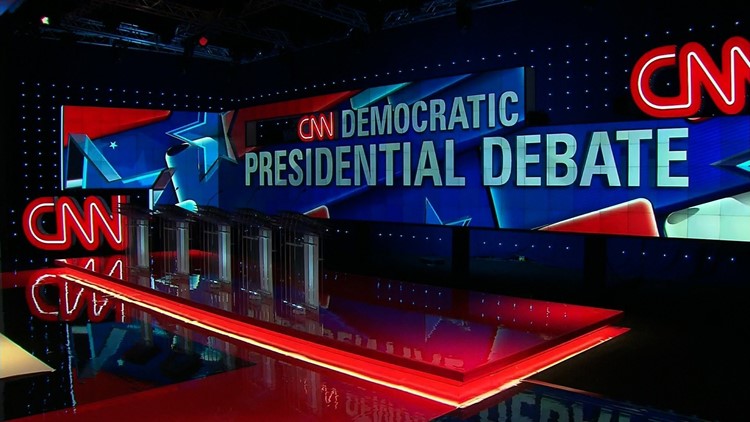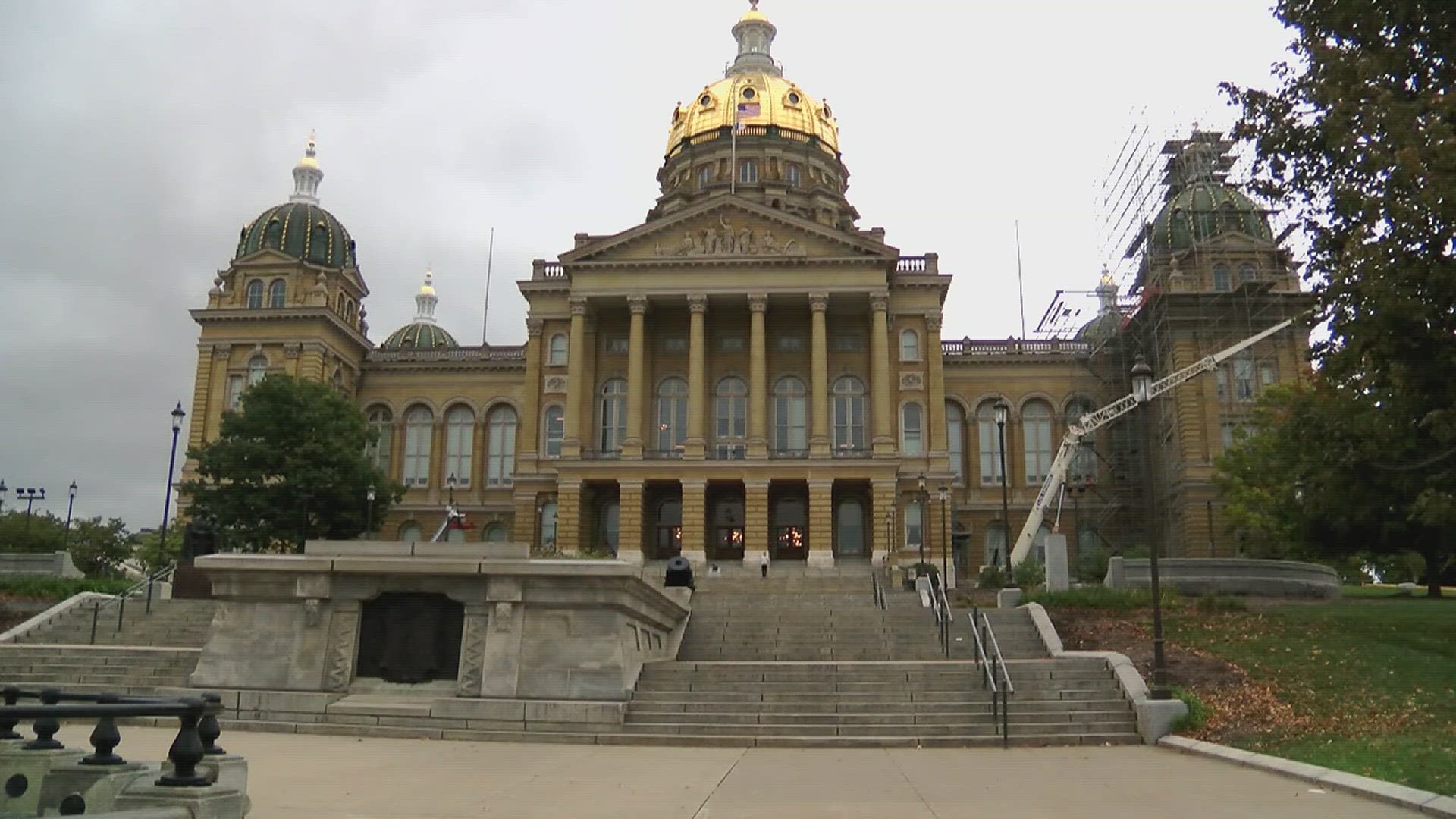(CNN) — Tuesday night’s CNN/The New York Times debate stage will feature a record 12 candidates. It could be the last debate appearance for up to 33% of them.
Former Housing and Urban Development Secretary Julián Castro, Hawaii Rep. Tulsi Gabbard, Minnesota Sen. Amy Klobuchar and former Texas Rep. Beto O’Rourke are all in deep danger of not making November’s debate.
That means Tuesday may be the last chance for those four to give their campaigns a realistic chance to have a measure of success.
Fundraising and polling qualification thresholds have been bumped up once again for November’s debate. Jumping those hurdles could be difficult for these four candidates in November.
The Democratic National Committee is requiring candidates to garner at least 5% in at least two DNC-sanctioned early voting state (Iowa, New Hampshire, Nevada and South Carolina) primary polls or 3% in at least four DNC-sanctioned national or early state primary polls. Candidates can use polls released between September 13 and November 13 to make the cut.
So far, Castro and Gabbard have received no qualifying polls for the November debate. Klobuchar and O’Rourke have received one qualifying poll each.
A strong performance on Tuesday’s debate stage could help their chances to make the November event. While it’s difficult to argue that any of the debates so far have had a long-lasting effect on the race, Castro, Gabbard, Klobuchar and O’Rourke really just need a momentary bump in the polls. There have been instantaneous rises and drops in candidates’ numbers this cycle.
The most obvious examples are what happened to former Vice President Joe Biden and California Sen. Kamala Harris after the June debate. If you don’t recall, Harris went after Biden on federally mandated school busing. Following the debate, Biden dropped into the low 20s (from about 30%) in a number of polls, while Harris climbed into a close second place in numerous polls. In the months that followed, Biden would end up recovering as Harris collapsed, but what’s important here is the debate caused movement in the polls afterward.
More recently, we saw what happened to Castro in September; he went after Biden, and his unfavorable ratings jumped overnight. With the higher poll threshold, Castro won’t be able to afford a similar drop in his ratings after this debate.
Will we see one of those moments on Tuesday night?
Castro and Gabbard likely need it more than Klobuchar or O’Rourke. They’ll need to create new support that hasn’t been there in the past.
For their part, Klobuchar and O’Rourke have shown an ability to do better than they are doing in the polls right now. They have hit the 3% (or 5% in the early states) threshold a number of times in the past.
What Klobuchar and O’Rourke need to do is reverse is bad trendlines.
Klobuchar has tended to do best in Iowa polling, but she missed 3% in a CBS News/YouGov poll released this past weekend. If enough qualifying Iowa polls are released over the next month (and there may not be), Klobuchar will likely need to hit 3% in every single one.
O’Rourke, on the other hand, has tended to lag in the early states, a trend he may have exacerbated by trying to run a more national campaign recently. That means he’ll likely be relying on national polls to make the debate, and he’s now at about his low point in the national polls for the entire campaign.
Now, missing a debate doesn’t mean a candidacy is over. There are a number of candidates who haven’t made the last two debates but are still campaigning.
The problem for Castro, Gabbard, Klobuchar and O’Rourke is that missing the debate stage means less media coverage and less of a chance to beef up fundraising numbers. A number of 2020 candidates have dropped out after missing a previous debate, such as New York City Mayor Bill de Blasio, former Colorado Gov. John Hickenlooper and California Rep. Eric Swalwell.
Going forward, the debate thresholds likely are going to get even harder to cross.



